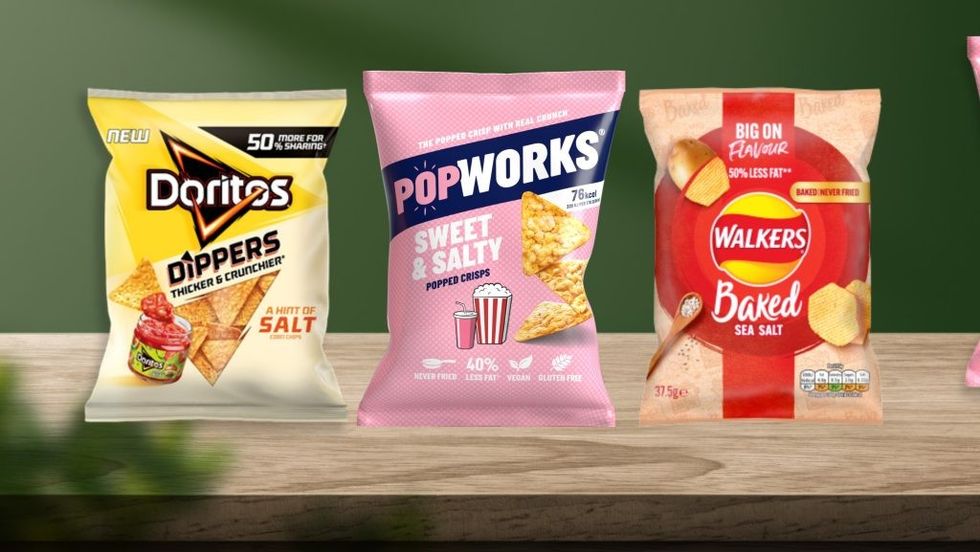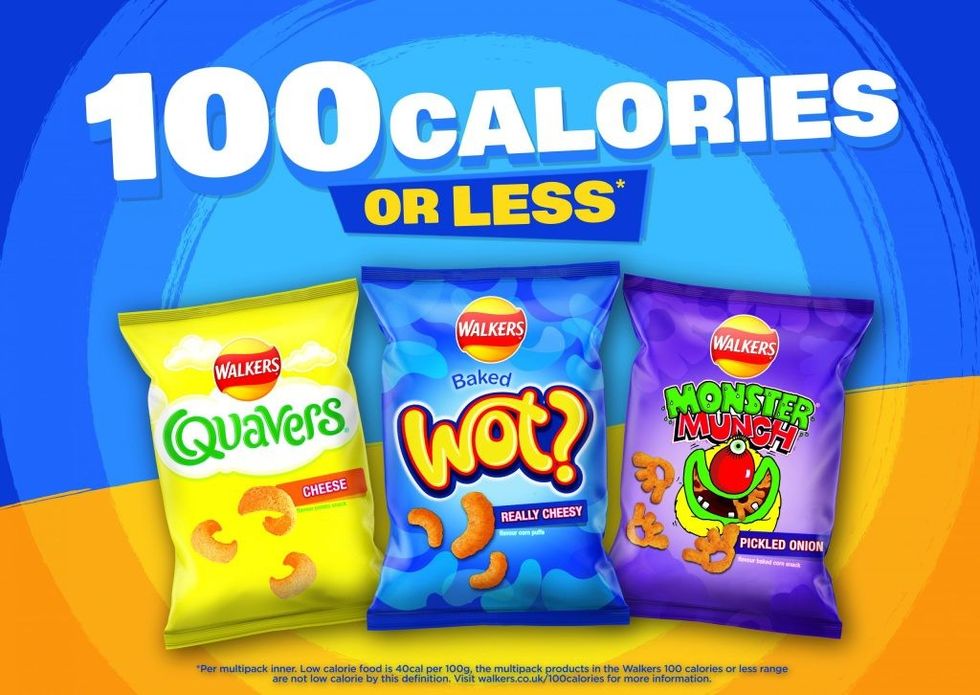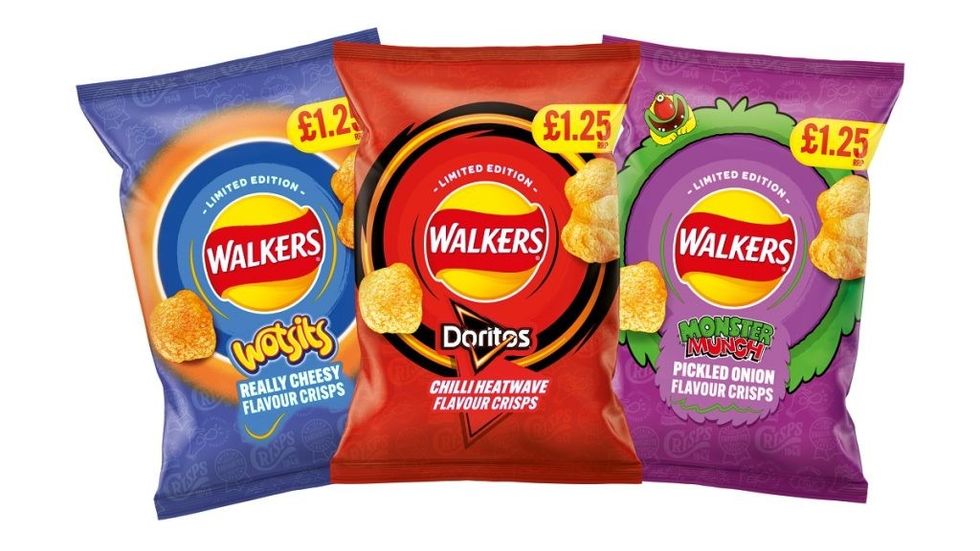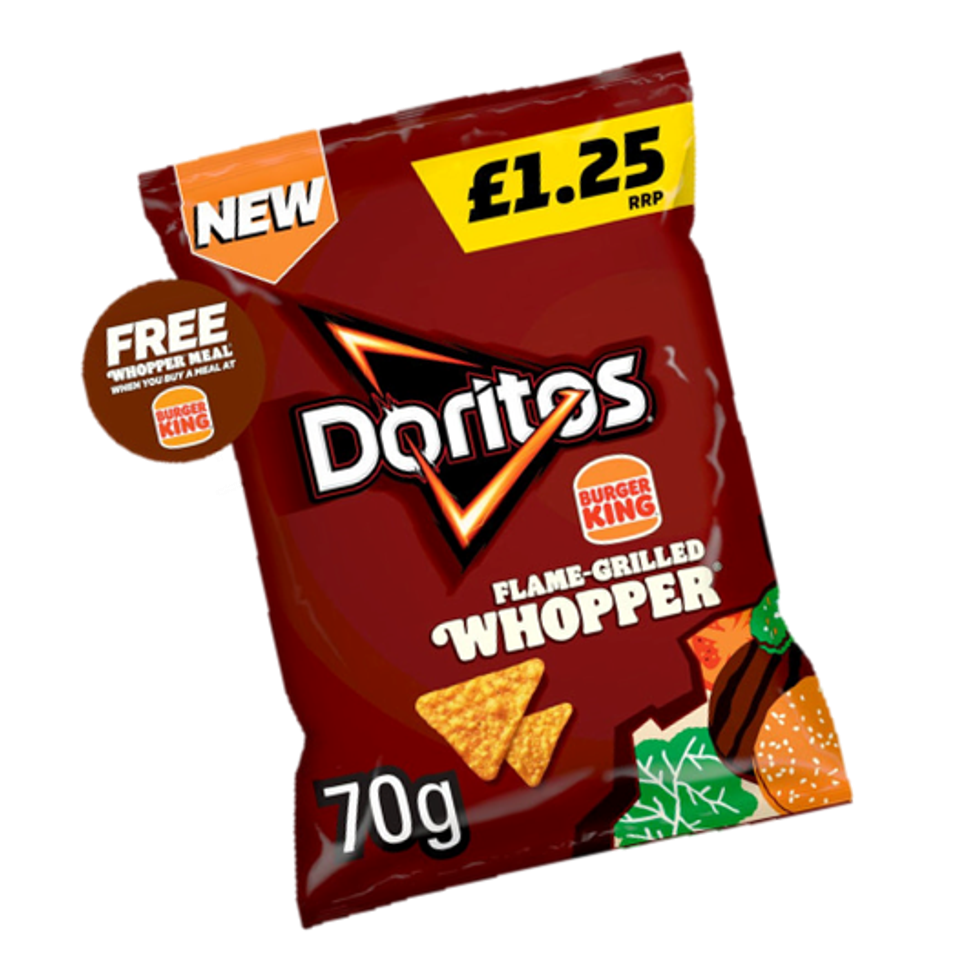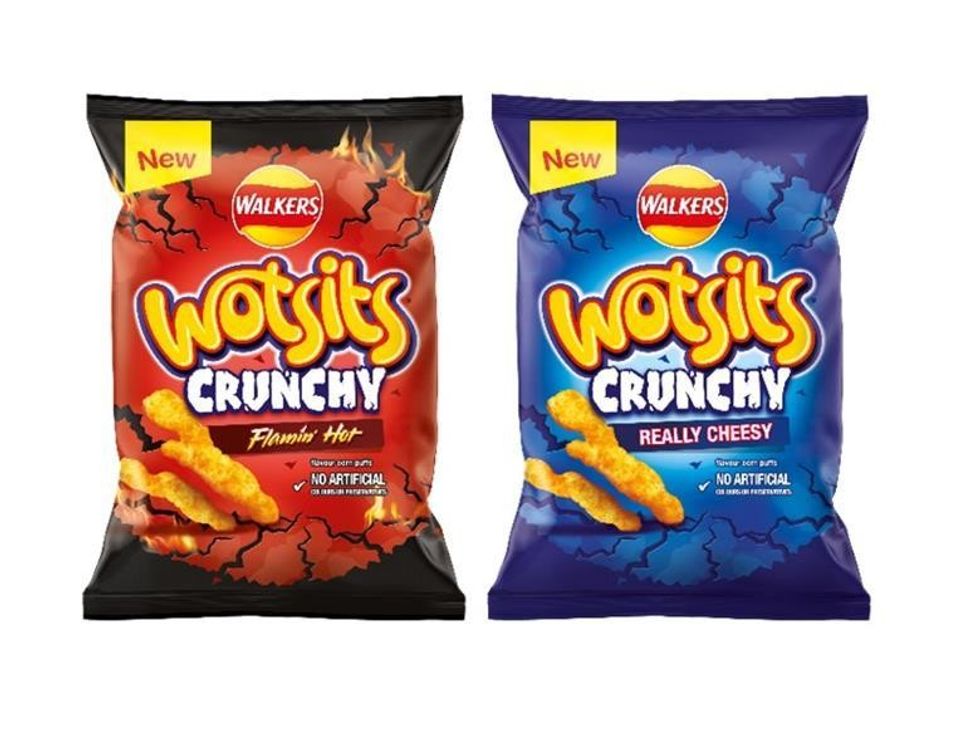PepsiCo’s Nic Storey sat down with us over a nice bag of Sweet Chill Sensations to talk about the ever-lively and evolving world of crisps and snacks – and there’s a lot going on
“Have you got all the brands there?” asks Nic Storey, PepsiCo’s Senior Impulse Sales Director, while I wave a bag at the computer as we commence a Zoom interview.
Not all of them, I reply, but I tell him we're great connoisseurs of potato chips in our house, and Thai Sweet Chilli is consistently present in the snacks cupboard.
“It's the number-one-selling Sensations flavour by a long way, partly because it's that balance between sweetness and bite. We own that flavour!”
Crisp connoisseurs will immediately get this. The crisps, snacks and nuts (CSN) scene has never been more enticing or full of interest, and Nic is the man to talk to if you want the serious data of Crisp World.
“Imagine if you're in the lead in a race,” he says. “It's easier to follow and catch up than to stay ahead. People are always trying to copy Walkers’ Sweet Chilli flavour and last year we had the unenviable task of making it better, which is always a danger.”
If it ain’t broke …
“We managed to improve it slightly, but it's like treading on glass. You don't want to get it wrong,” Nic says, adding that over 90 per cent of his professional focus is on crisps.
The first question is how the impulse channel is performing. Over the last three or four years lockdown meant staying more at home … eating a lot of snacks. What is the situation now?
“What I found fascinating is, if you look at all of convenience, the penetration –the number of shoppers that actually shopping the channel – is about 87 per cent of the UK population. It's massive, and it's growing.
“But if you look at the last four years, it hasn't changed much, maybe gone up a couple of points and down a couple of points. The channel is stable and super-relevant.”
That is Nic’s message: business is good and steady, and he thinks retailers in this sector are agile at serving changing shopper trends and demands. “We saw that through COVID, with sudden demand for bread, pasta, toilet rolls that went through the roof.”
With people still not fully back in the office, shopping missions have changed, with many more top-up missions – a habit learned under lockdown. Nic explains there is also more focus on value as well, because “everyone's a little bit shorter in the pocket, shall we say”.
That works well for convenience as people feel they can control their spend. And it is especially good for CSN.
“We're seeing more Gen Zeds and millennials in convenience stores, and they're looking for a bit more excitement and inspiration. They're not just buying bread and milk. They want to be excited by new product development (NPD) in particular.
“If you look at CSN, what we're seeing over the last nine months is that it's growing faster than nearly every other category, at about 10 per cent, but within this channel, it's growing at over 17 per cent, faster than in grocery. That hasn't happened before: we've always been talking about vapes or niche things coming through.”
He cites many different reasons but says when you look at the packs people are buying, the fastest growth in impulse is in price-marked packs (PMP).
“The £1.25 PMP small sharing bag is what's growing the fastest. Our PepsiCo range is growing at 23.5 per cent, and I think PMP is probably growing fast because of reassurance, that price flash on the pack.”
I tell Nic the feeling we have is that PMPs are the secret weapon of the impulse channel. It's like chilled drinks – a hard-to-dislodge advantage it holds over the multiples.
“You won't see PMPs in the top four multiples although I'm sure their customers really want it. It's this channel where PMP is most prevalent, but particularly with the most impulsive categories. So you'll see it in confectionery, you'll see it chilled soft drinks and in CSN. It's absolutely why this channel is growing CSN fastest.”
When you say impulse, is it customers picking up a 40g pack of crisps or is it larger formats and multibuys?
“The impulse channel has always been skewed towards smaller bags, whereas grocery will sell more multipacks for lunch occasions and the like. But the PMP is a small sharing bag, effectively, so there are different uses. Some people have it as a big eat while others will share it between two or three people.
“Having said that, the 150g sharing bag is showing pretty big growth as well. I think that's probably a slightly different occasion, that they've gone out on a bit of a mission – ‘Do you know what? I'm going to have Thai Sweet Chilli Sensations with a bottle of wine tonight’ – and it's almost a sort of mini top-up for the evening, some slight indulgence.”
Inflation is rampant, and I point out that PMPs used to have a hard £1 price point until last year when it crept up to £1.15 now £1.25. How is PepsiCo addressing issues of costs and margins in setting a price level fair to all?
“We made a move to £1.25 alongside the whole category,” Nice replies. “For context, it had been £1 for 14 years.
He says there were lots of options, conforming parameters: “We need to try and deliver value for our wholesalers, our retailers and our shoppers, and there's different ways you can do that. We didn't want to reduce pack size, because it delivers a certain mission so we moved the PMP element up, which is working and driving a lot of the growth. You'll find the same in other categories that have done a similar thing.”
It is said necessity is the mother of invention, and Nic points out how the move to PMP because of economic pressures has invigorated NPD and promotions.
“We've launched a lot of exciting stuff in the PMP category because that's the horse to back at the moment. Believe it or not, we didn't have Walkers Prawn Cocktail crisps in PMP. We had Ready Salted, Cheese and Onion, and Salt and Vinegar, the top three, but we di dn't have the fourth flavour, which is massive. In fact, it's number three in some regions.
Why the blind spot?
“Sometimes you just stand back and realise, this is a no brainer. But we also need to mix things up. We launched some pretty cool innovations a few weeks ago, where we took flavours from other products and turned them into Walkers crisps, so Monster Munch Pickled Onion flavour, Doritos Chilli Heatwave crisps and Wotsits Really Cheesy flavour crisps. You've got this confusion where the bite is a Walker's crisp, but the flavour is synonymous with a different snack.”
Exactly the sort of thing Gen Zeds and Millennials are looking for in convenience.
“It's a limited-time offer. Innovation is massive for us as a category, but particularly for PepsiCo. You talked about what convenience brings to the game, and this is what PepsiCo brings – this is us at our best.
“We feel there's a responsibility as a manufacturer to bring a bit of excitement. We're not selling a dull household item here; we're selling something where the number-one reason people pick it up is taste and enjoyment.”
I ask whether people prefer to pay a bit more for entertainment and price reassurance, because the feedback we're getting is that shoppers really, really hate shrinkflation, when the package gets smaller without an announcement, but the price stays the same.
“I think you'll find there's a different answer by category and by brand,” Nic answers. “We will always try to mitigate the impact, but another thing shoppers look for isn't the price, they're looking for innovation, they're looking for newness.”
And it is still preferable to paying over the odds to go out, it appears.
“I mentioned the top-up shop,” he says, “and if you look at the Big Night In (BNI) mentality, it's a good way of saving money because it's cheaper than a restaurant or pub or a takeaway. So, if I'm shopping for a BNI I've got a different mentality to buying commoditized items for a busy family. Instead, I'll go first for indulgence.
Nic calls it the Big Night In mentality and I ask whether CSN is now the tentpole holding up BNI and if the occasion is here to stay, representing a secular change in the social life of the nation? Was BNI a function of lockdown and is it now driven by the cost-of-living crisis?
“I saw it first when I was a buyer for Sainsbury's,” says Nic, who has spent 20 years in grocery – half at M&S and Sainsbury’s on the retail side, and half on the manufacturer’s side with General Mills, before joining PepsiCo five years ago. Nic brings perspective to the scene.
“I saw the BNI thing begin firsthand when it arrived in about 2008-9 on the back of the credit crunch, where people wanted to trim what they were spending,” he says.
“Do you remember the ‘Dine in for £10’ thing? Well, that partly started where people still wanted indulgence but didn't want to buy supermarket own-brand value lasagna for a Friday night.
“The other part was the whole snacking, soft drinks surge, which was on the back of the arrival of X Factor and all those stay-in Saturday-night family programmes. There's a rationale for saying BNI is just the value bit prevalent at the moment. But I think it's here to stay.”
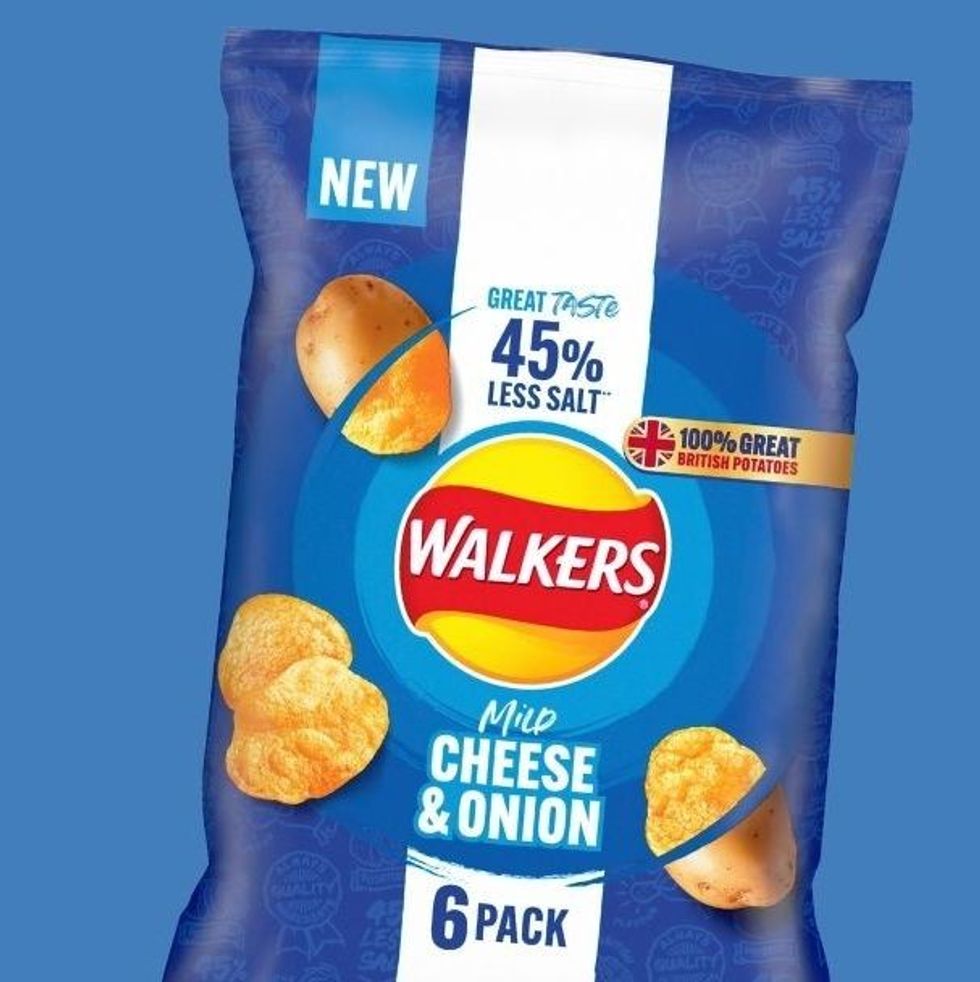
There are other trends such as HFSS compliance and the move by companies towards health and sustainability. Is it chiefly because of regulatory pressure or do they genuinely think that's what shoppers want?
“PepsiCo has embraced the legislation. We see this as the future and it's the right thing to do. The first wave of the legislation kicked in last October and that predominantly impacted grocery,” he recalls. “If you look at all convenience, fewer than 10 per cent were impacted by those legislative changes.
“On top of that, if you look at the hierarchy of decisions, health is higher in grocery for the shopper, and lower in the impulse channel; and taste is higher in this channel. It's a lot more planned and purposeful in grocery when you're doing your big weekend shop, whereas in convenience you're on the move, you want your satiety quickly and think, 'Do you know what? I want something a bit more indulgent for the evening.'”
It's a revealing consumer psychology and explains a lot.
“We've invested big time behind all of these changes to reformulate because we see healthier as the future,” says Nic. “Some of it we've done quite overtly and some of that a bit more discreetly, so you're giving people the benefit without having to worry about the taste being compromised.
He explains that last year PepsiCo put in place a three-year target – which Nic admits sounded ambitious at the time – for when the half company’s snack sales would be either under-100-calorie portions or HFSS-compliant.
“We set out an ambition to make 50 per cent of our snack sales come from healthier alternatives by 2025, targeting 30 per cent to come from products that do not classify as HFSS and 20 per centfrom snacks sold in portions of 100 calories or less per packet.”
This sounds like the talk of a man genuinely proud of the achievement.
“You can see we've really embraced it. We put in a lot of investment: this isn't tweaking things, this is wholesale change to what the product is.
“The most overt example is we now do a 45 per cent lower Walker’s crisp on our core Ready Salted, Cheese and Onion and Salt and Vinegar. More discreetly we've launched a lot of new product development, which is maybe more pertinent to this channel. With Doritos last year, we launched a Pepperoni Pizza flavour. And then earlier this year, we launched a partnership with Burger King to make a Burger King Whopper-flavoured Doritos. Both of those Doritos products, although we're not chatting about it overtly, are HFSS-compliant.
“This isn't taking a bit of salt out, it's a different product underneath.”

To that end, he mentions the recent £58m investment PepsiCo has made in its main, Leicester plant, where much of the new equipment will enable more HFSS-compliant production. Nic calls it future-proofing: “I feel we've gone through 10 years evolution in 18 months,” he adds.
In other snack news, I wanted to talk about Kurkure, launched not long ago, when it took everything by storm and won an Asian Trader Award. Is the future of snacks increasingly Asian – or global?
“Kurkure isn't some made up brand, for the UK,” Nic says. “It’s the one of the top-selling snacks in the India and Pakistan and has huge resonance. If you put this brand in front of first- and second-generation South Asians in the UK, they absolutely recognise it.”
But it’s not made just for South Asians, of course, but the wider (chilli- and spice-hungry) UK population.
We tweaked Kurkure to make sure we got the palate right, because every market has a slightly different palate. It's still pretty punchy on flavour and has a load of spice in there. I think about half of all convenience stores now have some sort of South Asian snack offering so that's the market we're going for. Kurkure has done well and although I can’t share it with you yet, there is more news later this year, and it's something cool.”
Which is to say, probably something hot. There is a philosophical difference between crisps and snacks that briefly worth getting into, because PepsiCo supplies a cornucopia of other snacks – some of them of extraordinarily long presence in the market, and I want to hear how they are doing – the ranks of Monster Munch and Wotsits, Bugles and Squares, Mix Ups and French Fries, hallowed names from a Gen X-er’s childhood?
“Massively, massively,” Nic says, nodding sombrely at the complexity of true, traditional snacks culture. “Imagine you're an independent storeowner faced with trying to manage everything, from baked beans to newspapers to vapes to CSN. What we do to help is this: we send out guidance on what their ‘Hero 25’ skus should be. What are the 25 products you absolutely must have. And a huge proportion of that is snacks.
“Crisps are crisps, but what we call snacks are the Monster Munch, Wotsits, Quavers, French Fries, Squares and so on. They are a huge, huge part of it. And interestingly, whilst they're big with the younger population, there's a lot of that ‘reminiscence consumption’ as well. We did an ad campaign last year, which was all about parents hiding their Monster Munch in the sock drawer, so their kids didn't get to it.
“What we've also done is used some of these existing super brands to splinter off some NPD. For example, we know what Wotsits is like, but we made Wotsits Giants 18 months ago, which are – and this is provable – 100 per cent bigger, officially twice the size. We also made Monster Munch Giant, which are 40 per cent bigger. People like us will say no, they were always that size back in the ’80s, but we really made them super big.
“And then the other one we launched last year, which has been a massive success, far more than we could possibly imagine – and I think it has the highest repeat rates of any product we have (in other words, the highest proportion of people that buy it and then buy again) – is Wotsits Crunchy.”
That’s the one I was thinking of!
“Wotsits Crunchy, which we have in this channel in a PMP, is a sort of a crunchy twist on the classic Wotsits snack in a flaming hot red bag and really cheesy. You seriously need to get hold of some.”
I assure Nic that it is certainly not only Zeds and Millennials who are looking to impulse-buy all of this stuff they can get their hands on. Innovative and experimental NPD appears to be another arrow in the convenience quiver that the lumbering mults will have trouble keeping up with.
“We used to call it 'making the big lines bigger'. Whatever you’ve got that is massive, make another branch off that!”
Nic says the funny thing is that while people can be quite promiscuous in this in this area, wanting to try new things, at the same time they're also hugely loyal to brands.
“So, you've got a dichotomy,” he explains. “Where you have an existing brand, that gives people reassurance. But then the excitement of a new format or flavour, or both – that's what we find hits the mark best.”
When PepsiCo did a tie-up with Burger King a few months ago, it launched Burger King Whopper-flavoured crisps and did a joint advert with them on TV: “As part of the flip of it, if you went into a Burger King restaurant, you could buy cheese sticks with Doritos Chilli Heatwave, broken down crumb on the outside.”
This is part of the future of the category: CSN striking deals outside the store that brings more footfall into the store, inspired by experiences and adjacencies elsewhere.
“This sort of thing is massive in the USA,” he says. “That's what we're trying to bring. Mash Ups was a US concept that we changed and made it a very British salient. What the Americans do with away-from-home, we've taken some of the best ideas from to try, but with a British spin on it.”
And now it’s time for some crisps.


